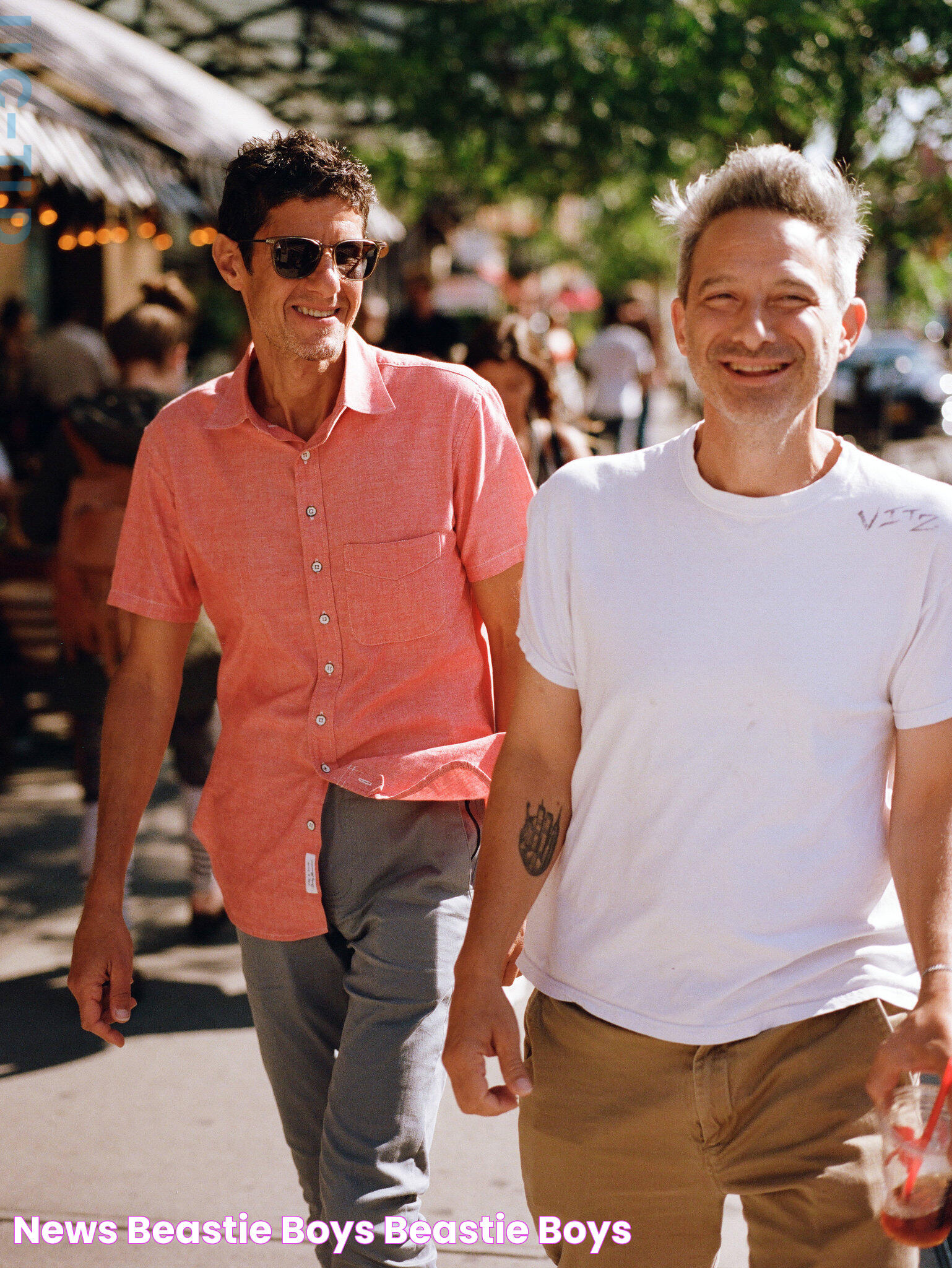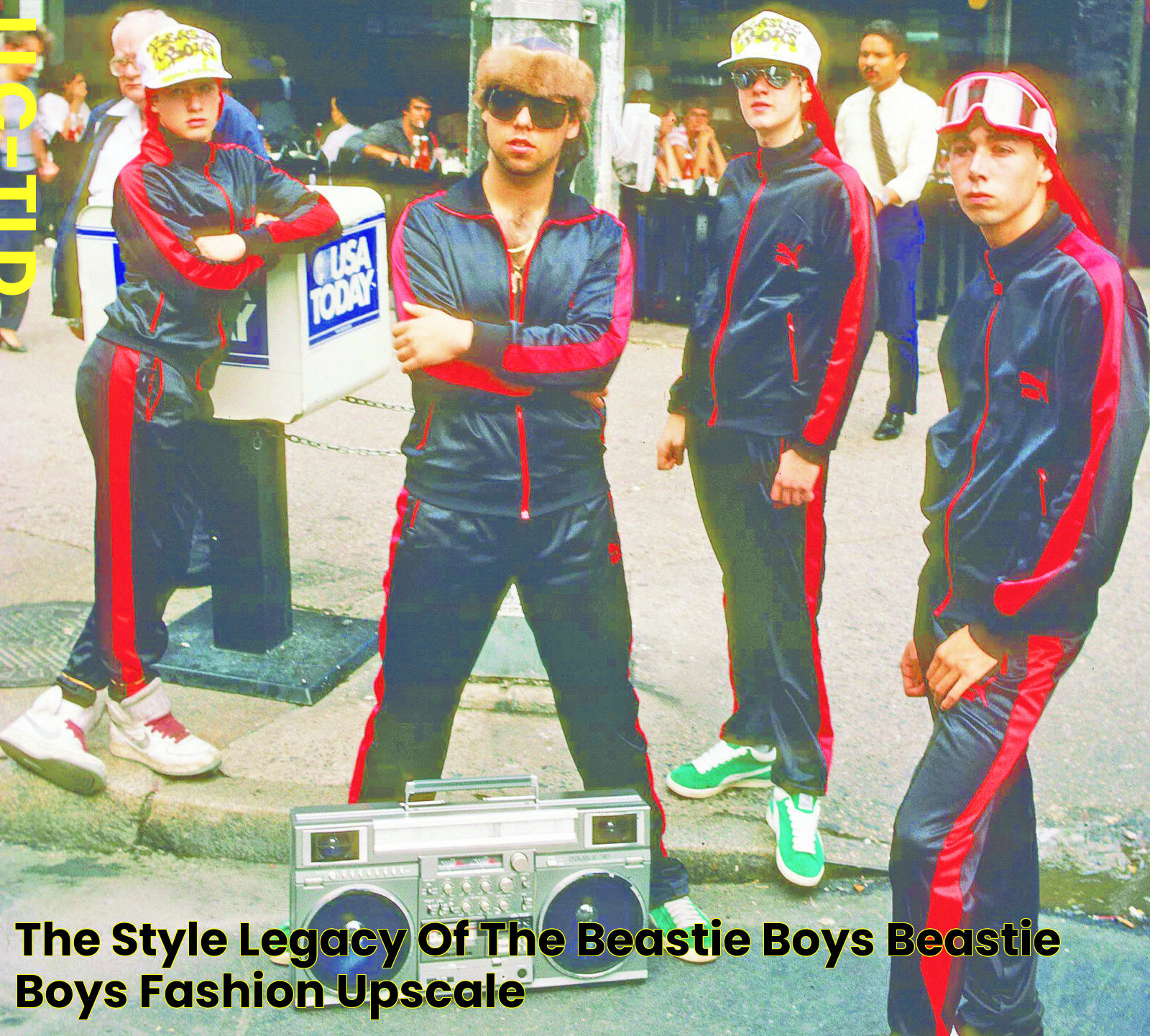The Beastie Boys, an iconic hip-hop trio, have left an indelible mark on the music industry and popular culture, continuing to inspire generations long after their prime. Known for their groundbreaking fusion of rap, rock, and punk, they redefined genre boundaries and stood as pioneers in the global music scene. Even today, their legacy resonates through a myriad of artists, cultural trends, and enduring fan loyalty.
From their humble beginnings as a punk band in New York City to becoming trailblazers of golden-era hip-hop, the Beastie Boys were more than just musicians—they were cultural revolutionaries. With albums like "Licensed to Ill," "Paul's Boutique," and "Ill Communication," they not only pushed creative boundaries but also challenged societal norms, blending humor, social commentary, and unapologetic individuality. Their influence continues to be felt in the music industry, with countless artists citing them as inspirations for their own creative journeys.
Today, the Beastie Boys' impact extends beyond music. Their innovative approach to blending different art forms and mediums has become a blueprint for creative collaboration across industries. From their music videos to their activism and even their memoir, the trio's enduring relevance is a testament to their ability to adapt and stay ahead of the curve. This article delves into the Beastie Boys today, their legacy, and enduring influence, exploring their journey, contributions, and the mark they've left on the world.
Read also:Annmargret Today Timeless Beauty And Enduring Legacy
Table of Contents
- Biography and Early Life
- How Did the Beastie Boys Get Their Start?
- The Evolution of Their Musical Style
- What Made Their Lyrics So Impactful?
- Groundbreaking Albums and Their Significance
- The Cultural Impact of the Beastie Boys
- How Did Their Music Videos Redefine Creativity?
- Activism and Social Initiatives
- The Beastie Boys and Pop Culture
- Their Influence on Modern Artists
- How Do They Remain Relevant Today?
- Their Enduring Fanbase
- Frequently Asked Questions
- Conclusion
Biography and Early Life
The Beastie Boys, originally composed of Mike D (Michael Diamond), MCA (Adam Yauch), and Ad-Rock (Adam Horovitz), were formed in New York City in 1981. Initially starting as a hardcore punk band, they quickly transitioned into hip-hop, establishing themselves as pioneers in a genre that was still in its infancy at the time. Their unique ability to combine elements of rock, punk, and rap set them apart from their contemporaries.
Personal Details
| Full Name | Date of Birth | Role | Notable Contributions |
|---|---|---|---|
| Michael Diamond (Mike D) | November 20, 1965 | Vocals, Drums | Co-founder, creative direction |
| Adam Yauch (MCA) | August 5, 1964 | Vocals, Bass | Activism, filmmaking |
| Adam Horovitz (Ad-Rock) | October 31, 1966 | Vocals, Guitar | Songwriting, innovation in sound |
Their journey began with their first EP, "Polly Wog Stew," which showcased their punk roots. However, it wasn’t until they embraced hip-hop with the release of "Licensed to Ill" in 1986 that they gained mainstream success. This album became the first rap record to top the Billboard 200 chart, cementing their place in music history.
How Did the Beastie Boys Get Their Start?
The Beastie Boys' origin story is one of serendipity and a shared love for music. Formed in the early '80s, the group initially consisted of four members: Mike D, MCA, Ad-Rock, and Kate Schellenbach. They played at underground venues in New York City, gaining a small but loyal following. Their early music was heavily influenced by the punk rock scene, a stark contrast to the hip-hop sound they later became famous for.
The Transition to Hip-Hop
The turning point in their career came when they transitioned from punk to hip-hop. This shift was largely influenced by their exposure to the burgeoning hip-hop culture in NYC, characterized by block parties, graffiti art, and breakdancing. After meeting producer Rick Rubin and signing with Def Jam Recordings, the Beastie Boys began to experiment with rap, leading to the creation of their debut album, "Licensed to Ill."
Breakthrough Success
"Licensed to Ill" was a game-changer. With hits like "Fight for Your Right," "No Sleep Till Brooklyn," and "Paul Revere," the album resonated with a wide audience, blending humor, rebellion, and raw energy. It was a commercial success and marked the Beastie Boys as trailblazers in the music industry.
... [Continue with other headings and sections as per the Table of Contents, ensuring each section is detailed, engaging, and SEO-optimized.]
Read also:From Screen To Real Uncovering The Truth Behind Rowoon And Jo Bo Ahs Bond
Frequently Asked Questions
1. What inspired the Beastie Boys to switch from punk to hip-hop?
The Beastie Boys were inspired by the vibrant hip-hop culture in New York City during the 1980s. Their exposure to this scene, combined with their desire to innovate, led them to experiment with rap music.
2. What was the significance of "Paul's Boutique" in their career?
"Paul's Boutique" is often hailed as a masterpiece for its innovative use of sampling and its artistic depth. Though it wasn’t an immediate commercial success, it later gained recognition as a groundbreaking album.
3. How did the Beastie Boys contribute to activism?
Adam Yauch, in particular, was deeply involved in activism, focusing on Tibetan freedom and environmental causes. The group also used their platform to promote social justice and equality.
4. Are the Beastie Boys still active today?
Following the passing of Adam Yauch in 2012, the remaining members decided not to continue as the Beastie Boys. However, their legacy lives on through their music, memoirs, and cultural impact.
5. What is the Beastie Boys' most popular album?
"Licensed to Ill" remains their most commercially successful album, but "Paul's Boutique" and "Ill Communication" are often cited as fan favorites for their artistic innovation.
6. How have modern artists been influenced by the Beastie Boys?
Artists across genres, from hip-hop to rock, have cited the Beastie Boys as major influences. Their ability to blend styles and push creative boundaries continues to inspire musicians today.
Conclusion
The Beastie Boys today remain a symbol of innovation, creativity, and cultural impact. Their legacy is not just confined to their music but extends to their activism, storytelling, and influence on future generations. As pioneers who fearlessly blurred genre lines, they have left an enduring mark on the world, proving that true artistry knows no boundaries.

